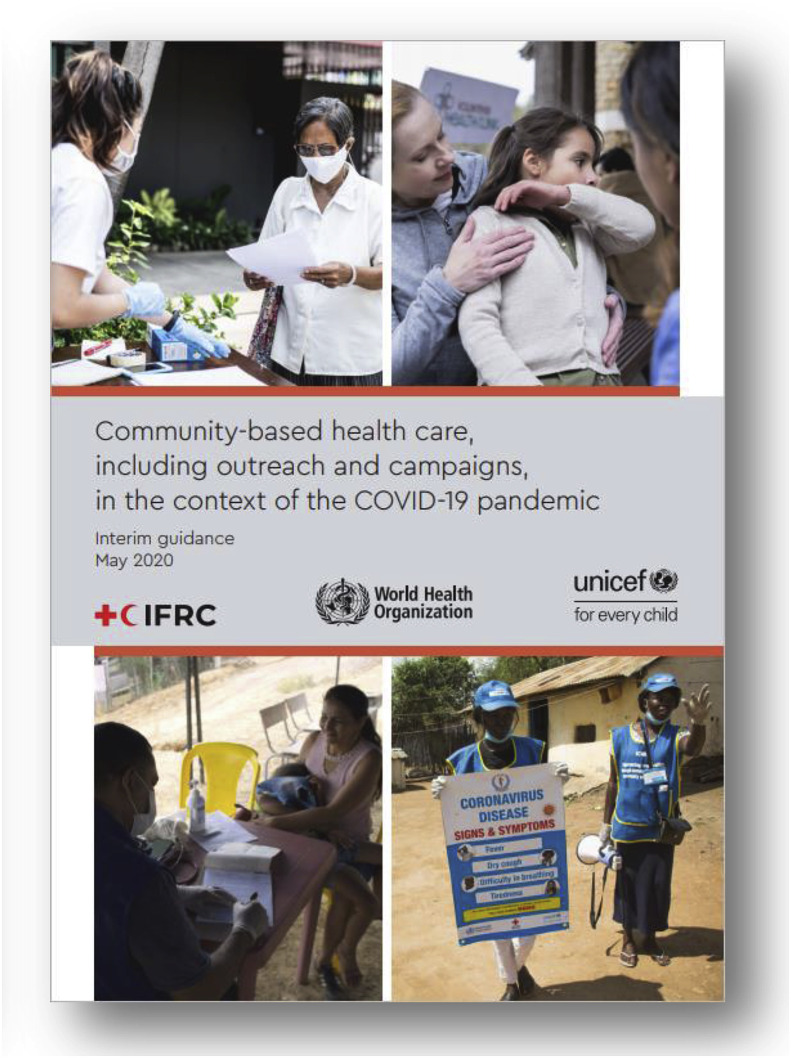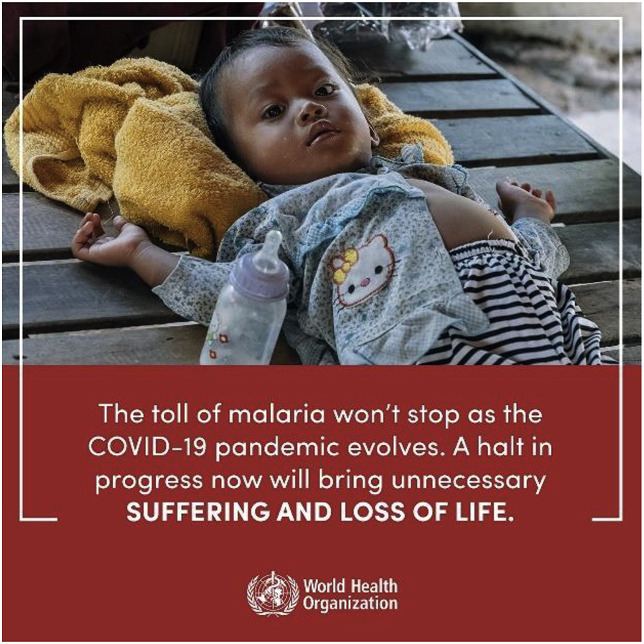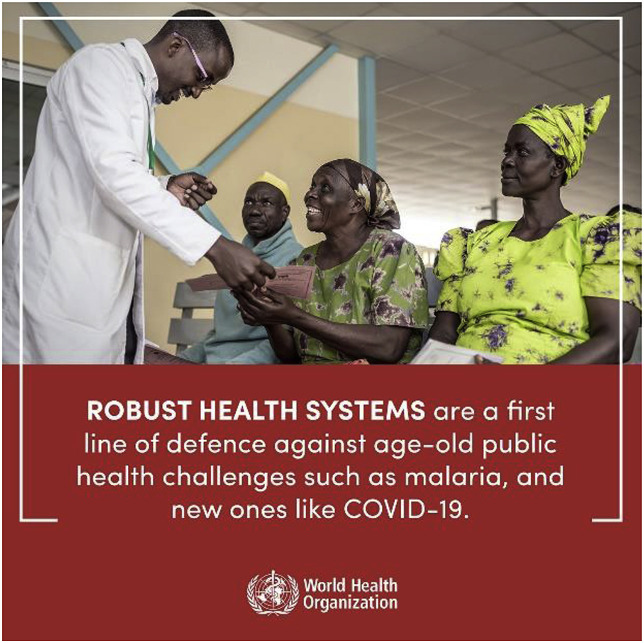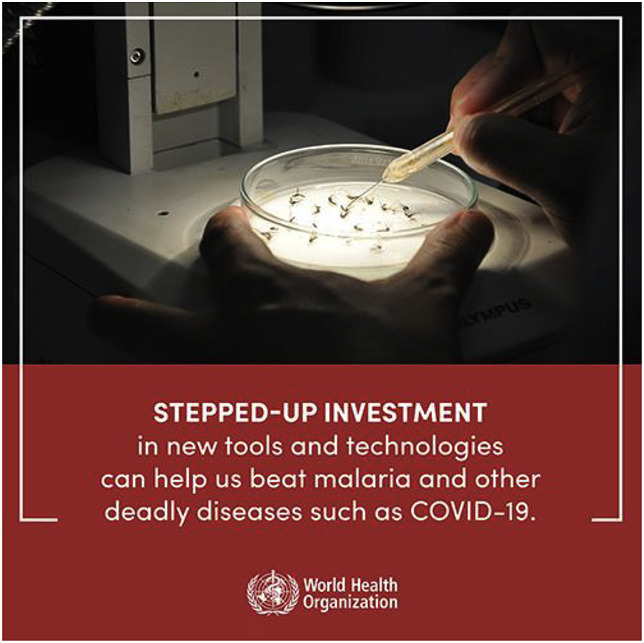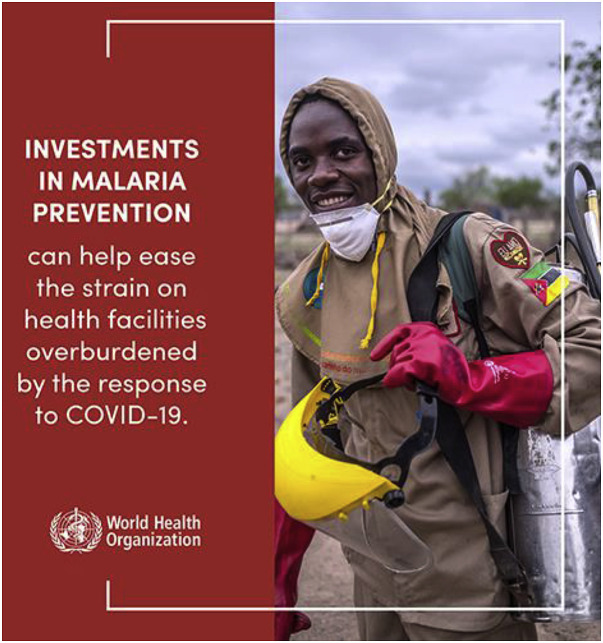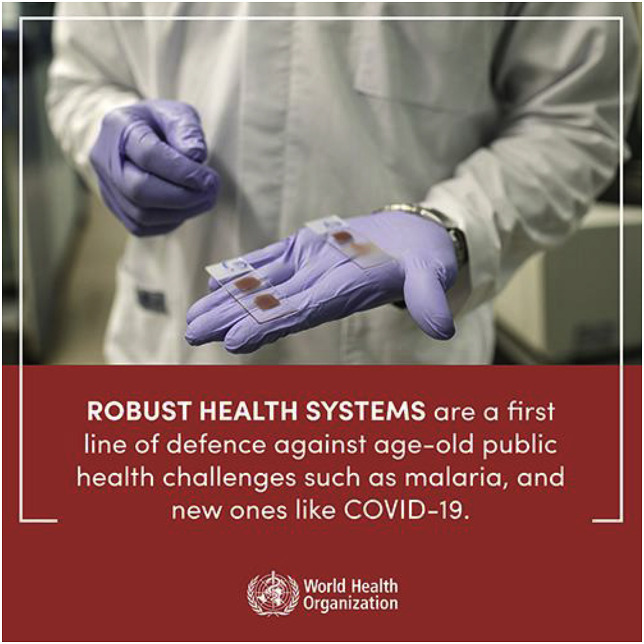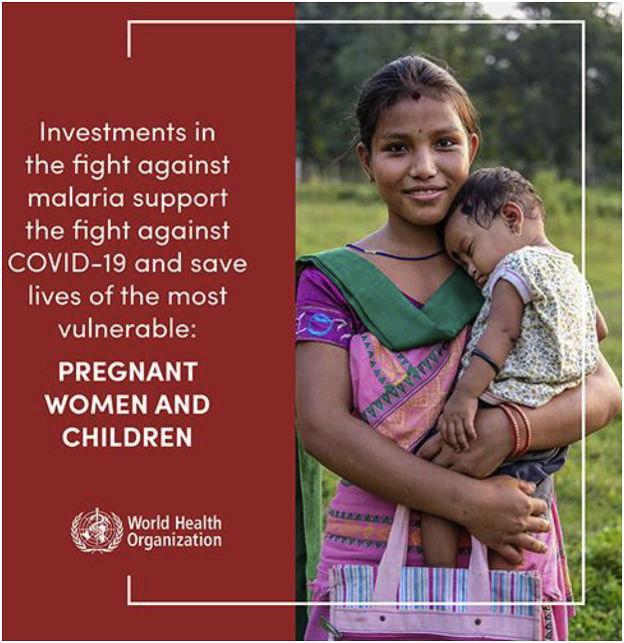As COVID -19 continues to dominate the health and political agendas in so many countries around the world, so does its devastating impact on other diseases become apparent. Malaria is just one of these. Back in March, the Director of the WHO Global Malaria Programme, Dr Pedro Alonso, stressed the importance of maintaining malaria prevention, diagnostic and treatment activities. Such measures were a key strategy for reducing the strain on health systems when an extra burden is anticipated due to COVID-19. Such systems included continuing with vector control such as insecticide treated nets (ITNs), indoor residual spraying, chemoprevention for pregnant women and young children.
On 23rd April, just prior to World Malaria Day (held on 25th April each year), the World Health Organization (WHO) published a report in which a new modelling analysis by the WHO and partners considered ‘nine scenarios for potential disruptions in access to core malaria control tools during the pandemic in 41 countries, and the resulting increases that may be seen in cases and deaths. Under the worst-case scenario, in which all insecticide-treated net campaigns are suspended and there is a 75% reduction in access to effective antimalarial medicines, the estimated tally of malaria deaths in sub-Saharan Africa in 2020 would reach 769 000, twice the number of deaths reported in the region in 2018. This would represent a return to malaria mortality levels last seen in the year 2000’. The document can be found at https://www.who.int/publications-detail/the-potential-impact-of-health-service-disruptions-on-the-burden-of-malaria and a newsroom statement at https://www.who.int/news-room/detail/23-04-2020-who-urges-countries-to-move-quickly-to-save-lives-from-malaria-in-sub-saharan-africa.
So the need to continue to fully engage with malaria prevention and treatment measures has never been more vital whilst being mindful of the risks to those undertaking the care. On the 5th May a joint interim guidance document from the WHO, UNICEF and the International Federation of Red Cross (IFRC) was published, entitled Community-based health care, including outreach and campaigns, in the context of the COVID-19 pandemic. This document addresses the role of community-based health care in the pandemic context. It includes practical recommendations for decision makers to help keep communities and health workers safe, to sustain essential services at the community level, and to ensure an effective response to COVID-19. https://www.who.int/publications-detail/community-based-health-care-including-outreach-and-campaigns-in-the-context-of-the-covid-19-pandemic.
The WHO has created a webpage which jointly addresses endemic malaria and the pandemic. This page contains the documents already mentioned, but in addition a range of other resources including some social medical cards to help share the strong messages as shown below. Also included is the link to a virtual symposia and the one highlighted is an interview with Dr Pedro Alonso, in which he discussed the challenges of simultaneously fighting the COVID-19 pandemic, and controlling malaria outbreaks in endemic countries, looking at the medical and public health concerns and strategies for addressing the threats successfully. See https://www.who.int/malaria/areas/epidemics_emergencies/covid-19/en/

Whilst international travel is very limited at the current time, one can only imagine if the impact of COVID-19 on the burden on malaria control is significant and risk increases to the situation seen in the year 2000, then the increased threat of malaria infection to travellers will become an unintentional consequence. Time will inform us, but we all have a responsibility to raise awareness of the importance of the potential impact faced and support the practical measures which must continue to happen.



